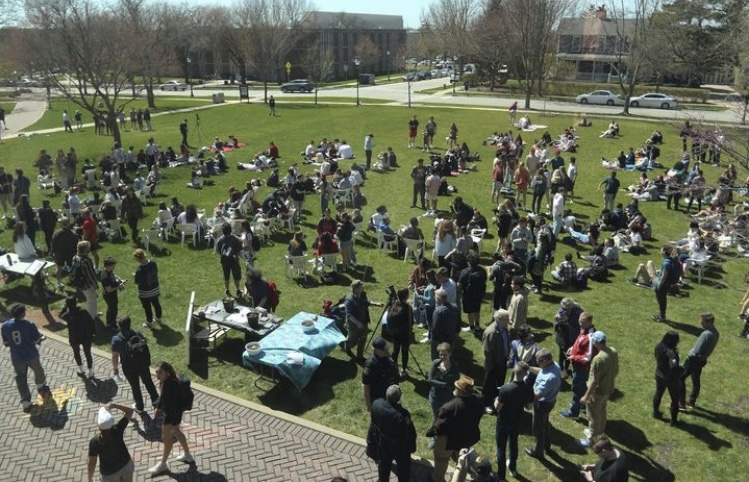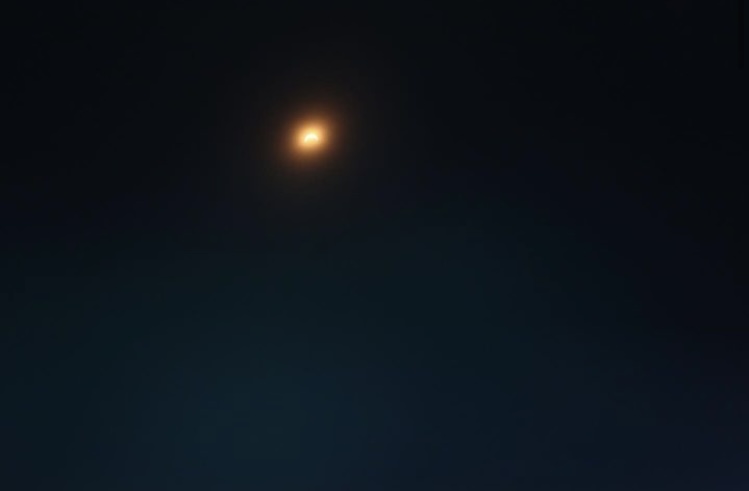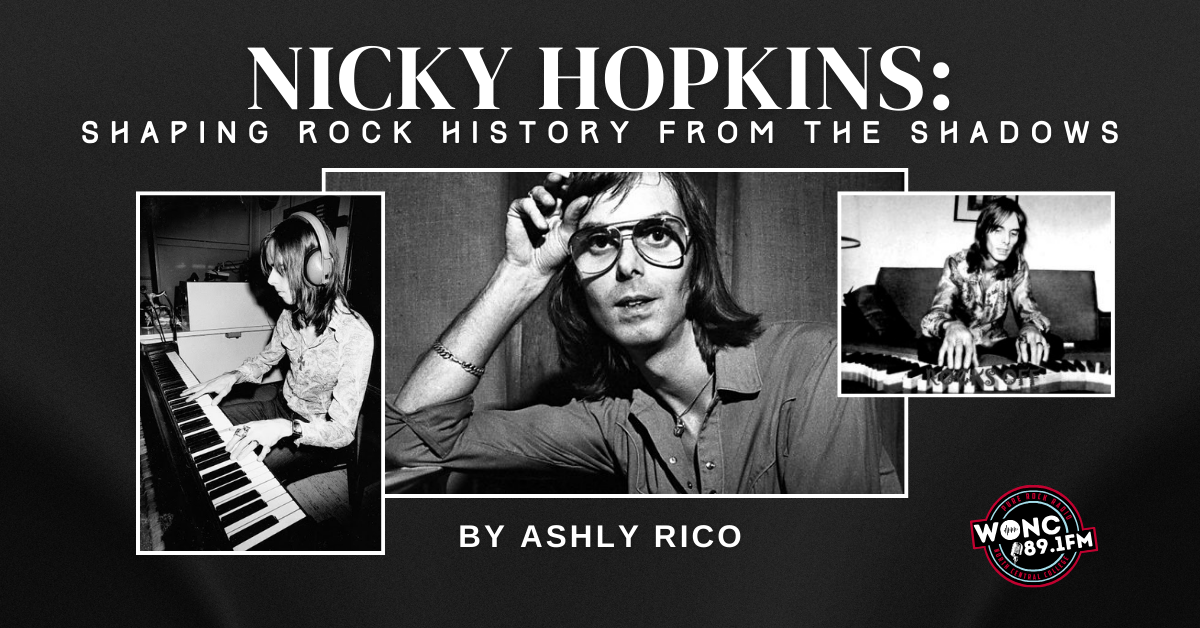by Josiah Cook
In that great journey of the stars through space
About the mighty, all-directing Sun,
The pallid, faithful Moon, has been the one
Companion of the Earth. Her tender face,
Pale with the swift, keen purpose of that race,
Which at Time’s natal hour was first begun,
Shines ever on her lover as they run
And lights his orbit with her silvery smile.
Sometimes such passionate love doth in her rise,
Down from her beaten path she softly slips,
And with her mantle veils the Sun’s bold eyes,
Then in the gloaming finds her lover’s lips.
While far and near the men our world call wise
See only that the Sun is in eclipse.
“A Solar Eclipse” – Ella Wheeler Wilcox
Pre-Event Refelections
As the 2024 solar eclipse passed by, reflections can be made about the significance of this event to humanity. It evokes a sense of transcendentalism that is paralleled by few other experiences, or so I have heard. Communities have intersected, wonder and joy was shared, and breathing and gasps of awe were interchangeable. If our ability to be mesmerized is what makes us human, then observing the night sky, or sky at significant conjectures in humanity’s history, brings us closer together and creates meaningful experiences with which we can use to form a shared understanding of our place in the universe.
As Vice President of NCC Orbit, the newly founded astronomy club on the campus of North Central College, the president and I reflected on this significant event and decided it would be a quality opportunity to make ourselves known on campus as the sun does every day and night. There’s a lot of anticipation that comes with the passage of the eclipse. What if the weather is bad? What if the view isn’t as good as we think it will be? What if it’s disappointing and I drove all the way down to Indianapolis for no reason, etc. However, they’re missing the point in worrying.
The eclipse is an event where people, regardless of background or politics, came together to witness something sort of like an interstellar soccer match and the unanimity is inexplicably joyous. The sun can be seen by everyone on the planet (while not recommended without proper eye protection), and so it’s an important time to remember to be kind and gracious to one another and to take that love and joy that people feel when seeing the eclipse reach totality into everyday interactions because on April 8th, 2024 and every day, there are constant reminders that no one is really alone, even though it feels like no one else understands you, and I urge you to take it all in. If you did go down to Indiana, reflect on your experience, and maybe try to make a new friend to share in further astronomical discoveries with.

Post-Event Reflections
None of the members of the NCC Orbit astronomy club were prepared for the absolute massive turnout that we experienced on April 8th. It truly was a uniting experience for the campus community, with a massive amount of the student body in attendance. Even though we only had a portion of the glasses needed for everyone there to have an individual pair, it created a sort of bonding experience, as people had to cooperate and coordinate when they would use the glasses and when they would share with the others in their vicinity.
Additionally, the weather was pristine, sunny and warm, perfect to draw the most disinterested student in the world of astronomy out for a nice day on the lawn with their friends. A cacophony of noise could be heard on Jefferson lawn and the excitement was infectious as the moon and the sun performed their anticipated show. The sky got visibly dark and the weather an octave cooler, which signaled to everyone that something otherworldly was happening and they needed to be attentive to what was going on around them. They most definitely did, as cheers and yelps of joy could be heard from all around.
I hadn’t really imagined that this experience of an eclipse could inspire so much enthusiasm as it did; it’s simple but definitely fulfilling to see. I can attest that a lot of people had a wonderful experience seeing something that exceeded their expectations. I’m very grateful for everyone that showed up to experience this event together. Gazing at the stars has been an important part of the human experience and more opportunities to foster that kind of connection together is the highest form of community building, and it should be celebrated. It just so happened that the event happened during the school year and not during the summer, and that made the event that much more special as more people from the campus community could witness the event of a lifetime.
If you didn’t get to see the eclipse, it’s definitely worth asking someone who did because they’ll be able to recount their experience with an individualized flare, and what better feeling to lend an ear to someone else’s tales. After all, that’s how knowledge of astronomy and the universe is spread.








